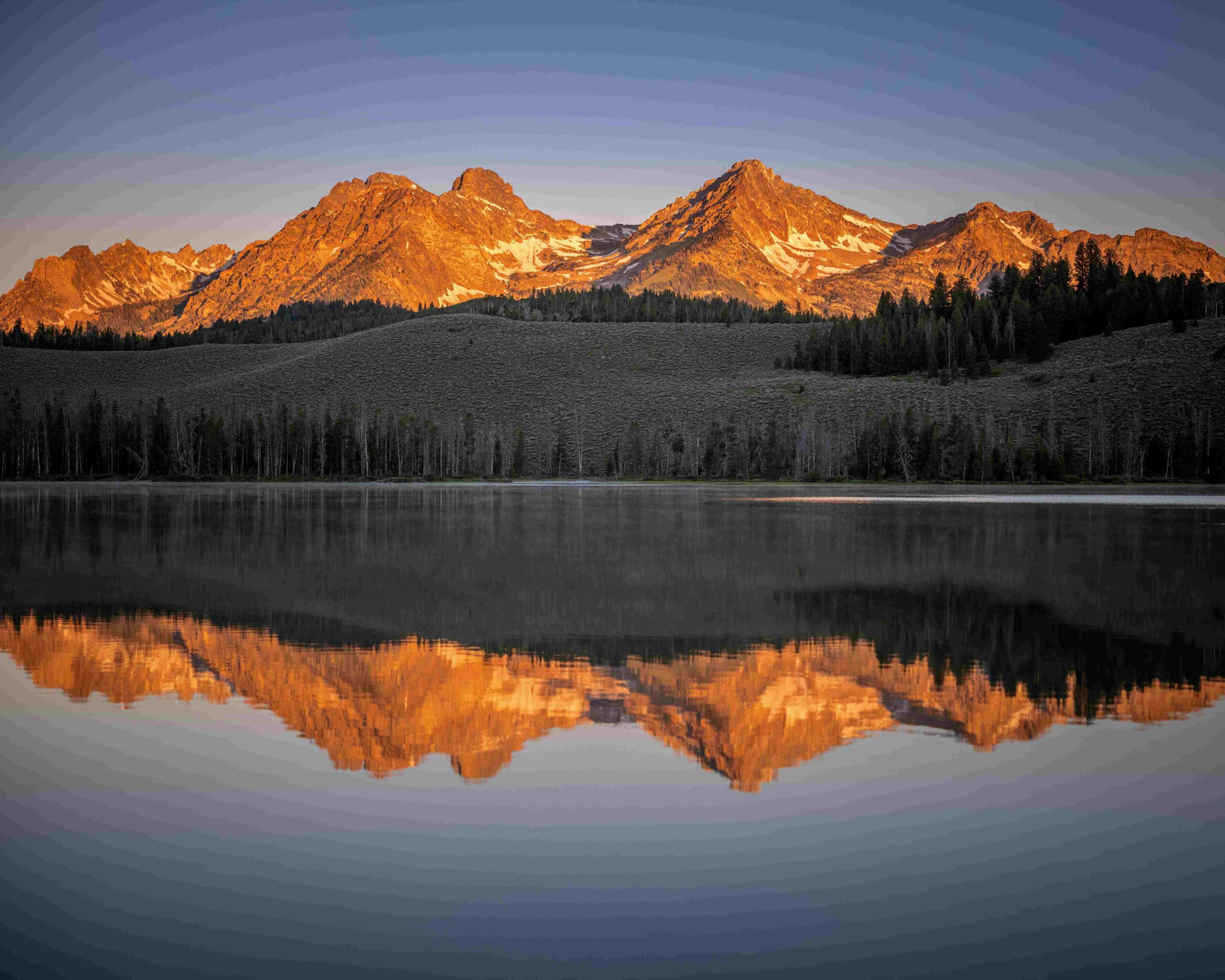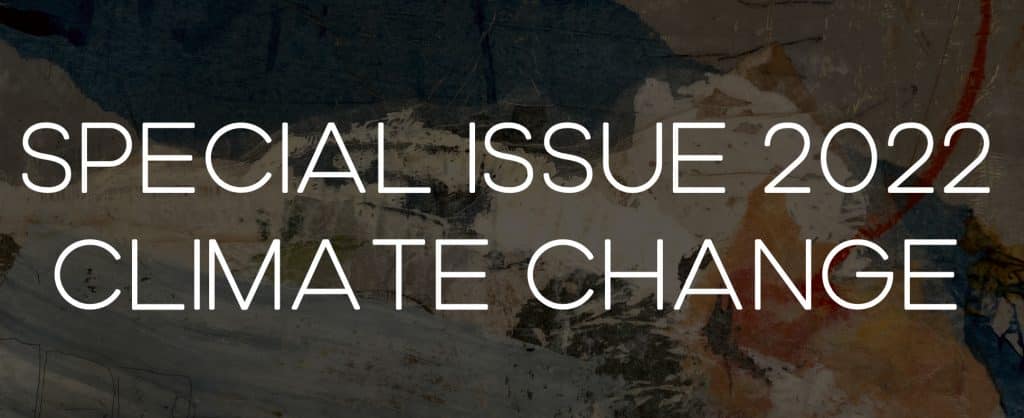At the time of the climate catastrophe, Cherry was reading her decade old pocketbook Zen and The Art of Motorcycle Maintenance. She saw the shiny glint in the horizon across the inland sea. A blinding flash overwhelmed the sky above Lake Ontario. Beach-goers and sunbathers shouted in exclamation and eyeball pain as they were momentarily blinded.
AUTHOR’S MEMO
“Cold Snap” is about two disparate adults, caught in the tumult of abrupt weather change, caused by the accidental detonation of an experimental meteorological weapon during a summer day on a Toronto beach. While the short story explores the background of the characters, including their conflicted interactions, the narrative has nascent elements of speculative fiction.
This fiction reflects part of my experience, distorted through the lens of fiction technique and creative writing style. Originally the first draft was told from the perspective of the two main characters or protagonists. (The antagonist in this story I regard as hypermodern technology.) The two-character and sometimes even three-character point of view is a technique I like to use in developing fiction, but, even after revision and editing, the resulting final draft doesn’t always provide a satisfying flow or conclusion in storytelling terms. A short story often works most effectively from a single character point of view because of the brevity and concision required by the genre. I note this because I believe it is part of my ethnographic experience: I have attempted to view the environmental and experiential scenario from the perspectives of at least two different characters, albeit their own personal philosophies may be closer than either character would admit. Gender and additional differences put them at odds, aside from the personality conflict they experience—an element upon which drama thrives and which is an element of life.
This story portrays the characters interacting and conflicting in public space, particularly those parts of the environment cherished by disparate members of the numerous communities in a cosmopolitan city. These frictions about what is best and ideal for the environment, I’ve observed, often arises between diverse people, including, say, residents, who may feel a sense of entitlement to public space and the environment outdoors because of heritage, history, socioeconomic status, knowledge, experience, background, or, even more unfortunately, race or ethnicity. Meanwhile, I’ve always believed in equality and inclusiveness in allowing everyone the ability to experience the environment and outdoors. (At one of the beaches that inspired this fiction, for instance, regular users or, say, veterans, often discourage or set a negative ambience for occasional or first-time visitors.)
Set against these issues are the problems posed by humanity’s interaction with the environment. Recently, climate change—an issue that has been with humanity for centuries—has come to the forefront of public and political consciousness. A concern for me: we have limited understanding of climate change, but future research, I fear, may discover lawmakers and governments have underestimated or misunderstood the impact of human technology writ large on the environment. Humanity’s utilization of technology comes into conflict with the environment and people’s secure and safe place in the earth’s fragile ecosystem and biosphere. The results and consequences can be devastating and cataclysmic; fortunately, these unexpected events are rare. However, I speculate future scientific discoveries will show the impacts of certain types of technological development on the human physiology is more detrimental and insidious than originally hypothesized.
Angus felt gratified for another day on earth, the green planet, and the fact he was still alive. As he eyed the spectacle wrought by an abrupt change in the weather outside, the death, injury, and now even mayhem, with looting and rioting of supermarkets, convenience stores, and shops on the streets outside, he was uncertain how he would survive tomorrow or the day after.
Cold Snap
Cherry went to the island beach because it was a clothing optional beach where she didn’t have to worry about the racket, noise, and disturbances of teenagers and children, and worse yet, their overbearing, bullying parents and bored, bossy lifeguards. In the past, Cherry often visited the long stretch of beach along the eastern side of the city, on Lake Ontario, near Queen Street West, to write and to read. At Woodbine Beach and Kew Beach, Cherry found the presence of children and lifeguards an annoying disruption and commotion. She found the slim, shapely beach volleyball players at Ashbridges Bay playing in groups amidst the vast number of venues and ropes and nets, alongside The Beaches boardwalk, a beautiful spectacle but also a distraction; she appreciated the peace and quiet to read and to write, in her tiny, neat, miniscule handwriting, filling a thick bound journal, embossed with the corporate logo of the American bank that employed her.
Remarkably, Cherry believed she did her best writing at the beach, but that was only her own personal, introverted opinion. She was secretive and shy about showing her writing to anyone else, although she had few friends and would never show co-workers. She stopped visiting Woodbine Beach when another beachgoer complained about Cherry snapping a picture of a sailboat drawing in her journal; she had hoped to use it as an illustration for her novel. So, Cherry started visiting the beach on Toronto Islands, even though it meant a boat ride across the harbor from the ferry terminal downtown. The crowd at the beach on Hanlan’s Point was adult, albeit sometimes immature; rules there were made to be broken, sometimes in spectacular fashion. This clothing optional beach became her summer happy place.
Cherry was still working on her first novel, the preliminary draft of which she wrote in longhand in a thick heavy diary and carried in her favorite Coach handbag everywhere she went. She had been engaged and occupied by her novel writing at the beach for the past several summers, since the bull market in technology equities caused her net worth to explode; she no longer felt the need to work overtime, to moonlight on the sly, or to pursue a side hustle like accounting, cooking the books for plumbers and electricians, plundering shoeboxes of receipts and electronic spreadsheets stored on faulty thumb drives for tax info. So, she decided to take a more relaxed approach to life, to pursue her creative aspirations. It might have been a hopeless endeavor and distraction, but at least she didn’t quit her day job as a financial advisor at the largest American bank in Canada, diligently keyboarding her desktop computer at her cubicle in a huge glass office on Bay Street.
The nudist, though, she found to be an annoying man, even though she found him attractive physically. Perhaps he was simply too old for her liking, but she did like and appreciate older men. This nudist, Cherry thought, looked at least a decade younger than his actual age, and people talked about him. Her impression: he loved being the center of attention, the subject of chatter. He proudly exhibited his large penis, which was impossible not to notice, as he strolled and seemingly patrolled everywhere along the nude beach. Still, she noticed he always approached younger women, attractive, young women, white, who looked hot in bikinis, newbies who never visited the nude beach before. He busied himself touting the glories of the beach over which he lorded, as he scrolled through the images on his smartphone. He showed them pictures, at which she never peered, since he always seemed nearby. She always turned her head away, averted her eyes whenever he was around. Meanwhile, if you were a prudish male who kept on his bathing suit or board shorts, or not as physically attractive as the other women, or if you were ethnic, or gay, he ignored you.
He watched Cherry: he let her know he was watching her, and once he even had the gall to call the police on her for staring. Cherry would glare long and hard at anyone offending her sense of propriety or anything for which she felt disapproval or disdain.
Another time, when she took out her camera and took a picture of a sketch she drew in her journal, he tried to accuse her of taking photographs surreptitiously. When he asked her what she had to say to that allegation, she ignored him. He walked further down the sandy beach towards the lifeguard stand and reported her to the lifeguard. A lifeguard came and asked her if she was taking pictures of beachgoers. Cherry merely pretended she didn’t exist. The police, in body armor and short sleeve shirts, with thick muscular arms decorated with tattoos, arrived and stood around her in a small mob. When she didn’t answer their questions, more police arrived, but she merely continued to read as she lay on her towel on the beach. Then, when the police officer took away her books, she said she knew her rights. She had majored in law at university, though she ultimately decided not to attend law school to become a lawyer. Still, she kept abreast of legal developments, particularly as they related to financial services and capital markets, her day job. She did love her work, even when she was on summer vacation, tanning her plump bare breasts on the nude beach. Finally, she resisted the urge to compliment the police officer’s French braids, at which she stared admiringly. Cherry said, “Thank you very much,” once; the second time louder; the third time louder yet. The police officers glanced down at her, topless, looked at each other, and finally moved further down the beach. Another officer lingered behind and asked her for her telephone number; he’d like to take her to dinner and a movie. She raised her nose and inhaled deeply before she spit down at the sand.
The police officers glanced down at her, topless, looked at each other, and finally moved further down the beach. Another officer lingered behind and asked her for her telephone number; he’d like to take her to dinner and a movie. She raised her nose and inhaled deeply before she spit down at the sand.
Initially, Cherry thought this busybody nudist was a predator or a dirty old man, who also happened to be a pickup artist, but then she realized the truth was probably more complicated. Either way, she didn’t like him and didn’t want him anywhere near her, no matter how popular he was among the regular crowd of hardcore nudists. Then, one summer she noticed that he had stopped visiting the beach, and she confessed to herself she felt relieved. She remembered she heard a beach regular say he had suffered a stroke. Another nudist said a woman beat him with a bottle of vodka at the beach after he approached her partner and started his spiel. Then she overheard someone say both stories were true: the woman who beat him with the full bottle of vodka merely gashed his forehead above his eye. Filled with repentance and remorse, she then apologized profusely when she saw him bleed, but, later, he suffered a cerebral hemorrhage at home. Cherry didn’t know who to believe or what to believe; she wasn’t at all surprised people at the beach were talking about him; he was so well known. All she knew was she didn’t want him anywhere near her. In either case, when he returned to the beach after a prolonged absence he indeed looked as if he had a stroke, with weakness on one side, and a drooping on the right side of his face, and a slow, shuffling gait, which improved slightly over time. Angus seemed to have aged numerous years in the short time since she had last seen him, since his illness, his neurological event. She was reminded of her older clients: one day, as you advised them financially, you saw them looking healthy and peachy, next they suffered a heart attack, stroke, or cancer, and looked unwell and aged years, but she knew she needed to make certain she had their executors, powers of attorney, and last wills and testaments in order then.
Angus was several years into retirement from his career in civil engineering when he started visiting the clothing optional beach. Then he suffered his first stroke, which was unexpected and nearly catastrophic. Through sheer strength of will and constant effort and exercise, slowly walking on the treadmill and cycling on the stationary bicycle, lifting light weights, he made a speedy recovery. After the stroke, Angus became slower moving, acquired a shuffling gait, and literally lost his powers of speech. He could still converse, but these noises were primitive vocalizations and grunts. His speech became hesitant, stammering, and faltering, and sometimes he sounded confused as he tried to articulate his cloudy thoughts. Only slowly did his faculties of communications return. In any event, Angus had no worries, no financial concerns, since his work in civil engineering had provided him an insider’s opportunities to buy into engineering and construction companies, which made him financially independent. Now, though, money didn’t provide the happiness he expected; he was comfortable financially, but he was old, lonely, and sometimes disabled.
Lately, his life felt like a constant struggle to stay warm. When he consulted a doctor about the condition, the doctor said this was a function of his aging organs and their naturally declining function, and the temperature regulation of his brain had been knocked out of sync by his brain hemorrhage. Even as he soaked up the heat and sun at this beach, luxuriating in the sensations of warmth like never in his life, Angus found himself unexpectedly feeling cool during the hot and humid summer. Still, he strolled the shoreline, waded the cool water around the point, met people on the beach, occasionally indulged in bird and human watching and conversation, and appreciated the scenery.
The warmth of summer at the beach felt luxurious since he usually felt chilled and cold. Into the big backpack he carried easily (since the stroke affected his speech and his brain, but not so much his muscular strength) he stored a thermos of coffee and lunch of protein bars, along with his bottle of aged Scotch, which he gladly shared with any attractive female takers, and beach blanket, as well as an insulated puffy jacket, a hoodie and sweater which kept him warm.
At the time of the climate catastrophe, Cherry was reading her decade old pocketbook Zen and The Art of Motorcycle Maintenance. She saw the shiny glint in the horizon across the inland sea. A blinding flash overwhelmed the sky above Lake Ontario. Beach-goers and sunbathers shouted in exclamation and eyeball pain as they were momentarily blinded. The sky exploded with light, flashing bright, then darkening, turning from black to red to orange and then an eerie purple before the colors faded to that of a resplendent sunset. Wind gusts picked up. Suddenly a hurricane force wind blew across the vast fresh water lake, a massive gust of cold air from the direction of the glint of light and then a massive flash in the sky.
As he looked around the beach, he saw people in short swim trunks or bikinis or topless or completely nude shivering, their teeth chattering, as they bundled themselves in their beach towels, blankets, hoodies, t-shirts, and jeans. Ice and icicles started to form on the branches and twigs of the trees and along the lake shoreline.
Angus took his puffy jacket and hoody and donned them, along with his insulated cargo pants. He came prepared for the cold nights, since he stayed all day and sometimes late into the evening. Usually when he departed the beach at night, the ambient temperature was cooler and the winds across the lake could turn chilly. As he looked around the beach, he saw people in short swim trunks or bikinis or topless or completely nude shivering, their teeth chattering, as they bundled themselves in their beach towels, blankets, hoodies, t-shirts, and jeans. Ice and icicles started to form on the branches and twigs of the trees and along the lake shoreline. Yachts and boats offshore pulled up anchor, motored to shore, or drifted, or drove to shelter, as ice fringes and layers formed around the beach and shore. Paddlers on canoes, kayaks, and paddleboards hauled their watercraft ashore, on the sandy beach, riddled with driftwood and jet-skis, although a few boldly paddled towards the harbor and the mainland, navigating through the ice floes that formed on the lake surface. Boaters struggled to start engines and indeed some outboard boat motors and sailboat and yacht engines and jet-skis started in the sudden cold. Their pilots and drivers steered their watercraft through the thin wedges of ice floes and motored across Lake Ontario towards shelter, the city’s lakeshore.
Angus realized he needed to get home to the city as soon as possible before he succumbed to the perils of cold. Around him on the beach, filled with nudists and sunbathers, he observed that some struggled from the cold and even appeared to have fallen unconscious. As he attempted to rouse another mature nudist he saw regularly at the beach, he realized that not only was he unconscious but he was probably also dead—beyond revival and resuscitation. Angus needed to help himself, before he himself became a victim. Again, he tried to help people minister to stricken island visitors succumbing to the severe sudden cold, but he realized the best that he could do was to help himself. On the mainland, in the city, across the inland sea, which was misty and foggy, sirens and alarms started to shriek, wail, and scream through the city streets snaking a path through the canyons of high-rise condo and office buildings.
Hiking along the trail, Angus marveled at the sudden intricate frost that had beautifully formed in remarkable microscopic geometric patterns on the trees and shrubs growing throughout the island parkland and fields and along the trails. As he hiked along the pathway through the park greenery, he came across evidence and signs of the cold and flash freezing.
Then he came across that young woman he regularly saw at the beach. Cherry usually carried a thick, beautifully bound journal, embossed with the corporate logo of the American megabank, which she filled with her neat handwriting. Dressed in a sheer short summer dress, and sandals, Cherry gladly took the insulated beach blanket; even though she didn’t like the man her attitude recently was tempered by his stroke, from which he was partially rehabilitated but still afflicted. During the summer, Cherry supposed, there was nothing for him to do but take a staycation in the city: visit the local beach, enjoy the scenery, the sunsets, and the heat and the sauna-like effect of the humidity, which might be detrimental to health, while he awaited the grim arrival of death. Still, he came prepared for the cold, and she felt grateful he was willing to share his warm apparel.
Cherry tried to ask the lifeguard what had happened, what had caused the abrupt cold. The teenager in a light red parka said lifeguard staff heard rumors from emergency radio communications a nuclear device had exploded near an air force base in upstate New York. They watched an exodus of islanders fleeing inland across the airport tarmac.
The pair walked purposefully, along with the rest of the surviving summer horde, to the ferry docks. A City of Toronto lifeguard, waiting for her crew and supervisor, waved her arms and warned the city ferries weren’t running due to equipment breakdown and the sudden cold. Cherry tried to ask the lifeguard what had happened, what had caused the abrupt cold. The teenager in a light red parka said lifeguard staff heard rumors from emergency radio communications a nuclear device had exploded near an air force base in upstate New York. They watched an exodus of islanders fleeing inland across the airport tarmac.
“Where are they going?” Cherry asked.
“I think they’re walking across the airport to the underground tunnel–to get home, in the city.”
“Can we do that?”
“It’s highly illegal, but I don’t see what choice you have,” the lifeguard said, before she quickly added, “I didn’t say that.”
Angus and Cherry followed the long line of day trippers across the airport tarmac, around which frost had formed, through a gate left open. Helicopters hovered overhead, and landed and took off around the parked propeller planes. Sirens and alarms went off around them, as a voice of doom on the public address systems warned against crossing the runway of the island airport. Ignoring warnings, they joined the masses, the migration of day trippers marching steadily across the landing strip and runway from the islands, into the underground tunnel beneath the narrow water channel of the harbor, into the city waterfront. Despite the crowds lingering alongside the runway and even crossing, a commuter airline approached for a landing in the grey foreboding skies across the harborfront and Lake Ontario.
Every time Angus tried to stop to help the fallen who had succumbed to the cold and lay nearly lifeless or dead on the ground, Cherry warned him against playing the role of Good Samaritan lest he become a victim himself. They joined a group milling about near the airport terminals, hangars, and aircraft idling near the runways until they joined another group, with a sense of direction and purposeful urgency, moving steadily and slowly in unison, taking the stairs, walking down the escalators, which had failed, and along the moving walkway, which had also stopped, through to the underground tunnel to the mainland.
They walked and jostled through the underground tunnel crowded and packed with day trippers in summer clothes. Whenever someone asked what had happened the hearsay words and rumors indicated an American nuclear weapon aboard a supersonic bomber or a modified B-52 had evidently exploded in midflight. Cherry thought it odd that people kept mentioning a modified B-52, partly since those U.S. air force bombers had been in service before she was even born. At the entrance to the airport pedestrian tunnel beneath the harbor channel, Cherry realized she had forgotten her journal, with the first draft of her novel, which she had been working on for the past four summers. When she turned around and mentioned she needed to return to the beach to recover her journal, and her novel, she could not understand his reply since he became emotional and unintelligible, but he finally wrote down on a breast pocket notepad, “You can’t go back to the beach. It’s too dangerous and you might die. Someone will keep your handbag for you.”
Cherry thought he didn’t understand she wasn’t worried about her handbag, but she realized there was a chance she could perish rescuing her journal. Still, she had survived so far and considered her writing irreplaceable and worth the effort; but she also believed somebody had already recovered the bound volume, in the crowded chaos. She was dubious they would return her writing, if they recovered it, since she had left her journal in a pricey Coach handbag, and this was Toronto, after all, finders keepers.
“I don’t need to hear your crude and sexist remarks,” Cherry snapped. Cherry then paused as she figured she should refrain, hold her tongue, since they were amid an unprecedented disaster. Also, he had suffered a stroke and was still recovering. Cherry asked him if he wanted his insulated blanket, but he had shaken his head and was already walking off, with his limp and fragile shake. Cherry caught up to him and asked him if he wanted her to walk him home.
Fearing she would succumb to the cold on the walk home from Front Street, she asked him if she could keep the lightweight space age foil blanket which he had wrapped around her shoulders. He said and nodded of course. Cherry hugged him and then she heard him muttering something beneath his breath. She couldn’t understand what he said, but she thought his words might be important. She asked him to speak slowly and clearly and to enunciate his words, since she was interested in what he said. Angus said she looked good nude, her breasts were nice, perky, and he complimented her appearance in a bikini. She realized he had not changed.
“I don’t need to hear your crude and sexist remarks,” Cherry snapped. Cherry then paused as she figured she should refrain, hold her tongue, since they were amid an unprecedented disaster. Also, he had suffered a stroke and was still recovering. Cherry asked him if he wanted his insulated blanket, but he had shaken his head and was already walking off, with his limp and fragile shake. Cherry caught up to him and asked him if he wanted her to walk him home. He told Cherry to leave him alone and even concluded, “Fuck off.”
Cherry departed on Front Street towards her apartment building as the city was blanketed by an ominous cold and even for a few moments a light snowfall. She wondered if this precipitation was toxic or radioactive and protectively covered her mouth and nose with a towel which she had wrapped around her into a scarf. Buses and streetcars were abandoned in the middle of the city streets and motor traffic was blocked by broken down vehicles. At crowded intersections, police in parkas, winter boots, and toques, who had only this morning luxuriated in short sleeves during the midsummer heat wave, controlled traffic due to the power outage.
The police told everyone to keep moving, to go home. When the evacuees asked the police what had happened, they said a top-secret American weapon had exploded in midflight over Lake Ontario.
“Take shelter!”
“Go home! Stay home!”
“Await further instructions!”
Angus walked along Spadina Avenue, where the dead littered the sidewalks and were slumped over the steering wheels of their motor vehicles. He began to wonder if it was his warm puffy parka and clothes that kept him alive or some other factor was at work, a genetic predisposition or a quirky genetic trait that made him immune to some toxin or radioactivity exposure or even the severe cold, even though he felt sensitive and uncomfortable in chilly weather.
The cold snap showed no signs of abating, though, as several times he slipped on ice on the sidewalk. He even toppled over completely, but aching and sore, having landed on his backside, he felt relieved when he didn’t appear to break any bones.
The cold snap showed no signs of abating, though, as several times he slipped on ice on the sidewalk. He even toppled over completely, but aching and sore, having landed on his backside, he felt relieved when he didn’t appear to break any bones. Everywhere around him, people shivered and shook from the frigidity, especially when the wind gusts blew hard. Everywhere sirens, fire alarms, and car alarms sounded and rang to an ear aching and nightmarish degree.
Angus finally arrived at his condo building at Yonge and Gerard. When he saw the elevators were out of commission, not operative, he felt relieved he only had to climb the back stairs to the seventh floor of the seventy-seven-floor building. As he climbed the stairs, he felt relieved the exertion of stair climbing generated warmth and body heat. The heating system inside his condo unit in the tall condo building was functioning; the emergency power generators worked.
Angus turned on his emergency shortwave radio and, seeking reliable information, uncluttered with commercials, or a nationalistic bias, tuned into the BBC. The announcer for BBC News International, who spoke with the precise diction and the enunciation of a Shakespearean actor, said an American experimental weapon had exploded in mid-air aboard a modified B-52 flying over the southern side of Lake Ontario. Unidentified sources at the Pentagon and Department of Homeland Security indicated the weapon was a top-secret meteorological weapon, designed by the famed advanced weapons division of a defense contractor. The weather weapon’s effects impacted severely and abruptly local weather systems. A press conference from the White House, with officials from the National Security Agency, was scheduled to provide emergency information and disaster updates. The governor of the state of New York had already declared a state of emergency and authorized a mobilization of the National Guard.
Angus brewed coffee with water he poured through a filter when he observed the water’s turbidity and cloudiness in the carafe. He listened to emergency broadcasts on the radio and observed the pandemonium in the street from his window. As he sipped the fresh hot coffee, he felt gratified he was alive. He observed with wonder the threads of smoke rising straight from the heat vents, smoke stacks, and brick and steel chimneys. The mist drifted above the landscape, through canyons of busy downtown city streets, lined with high-rise office buildings and apartment and condominium towers. Angus felt gratified for another day on earth, the green planet, and the fact he was still alive. As he eyed the spectacle wrought by an abrupt change in the weather outside, the death, injury, and now even mayhem, with looting and rioting of supermarkets, convenience stores, and shops on the streets outside, he was uncertain how he would survive tomorrow or the day after.











